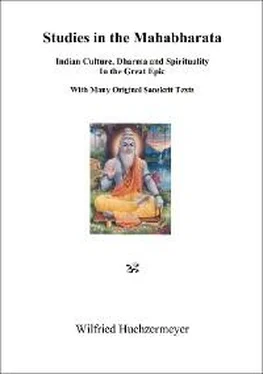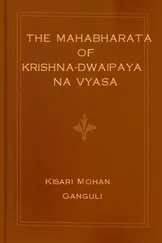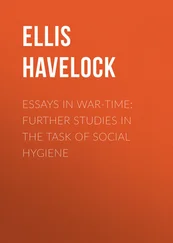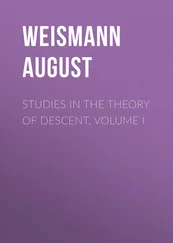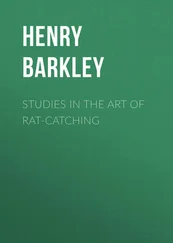tayā svajanagāmīni śrāvito vacanāni saḥ /
saṁpūjitaścāpyasakṛcchirasā cābhivāditaḥ // 6
tāmanujñāpya vārṣṇeyaḥ pratinandya ca bhāminīm /
dadarśānantaraṁ kṛṣṇāṁ dhaumyaṁ cāpi janārdanaḥ // 7
She gave him messages for her relatives and honoured and saluted him with many bows. Then Vārṣṇeya took leave of his beautiful sister, bidding her farewell, and went to see Kṛṣṇā and Dhaumya.
In spite of the emotional atmosphere of the scene Vyāsa’s Sanskrit – it is most probably one of his original texts – remains sober and does not try to convey anything which is not really there. Thus we can go along with the poet, even bear with occasional repetition
The content of this passage: After the affectionate fare-well meeting with his beloved sister, Kṛṣṇa wishes good-by to Draupadī and Dhaumya, the family priest of the Pāṇḍavas.
vavande ca yathānyāyaṁ dhaumyaṁ puruṣasattamaḥ /
draupadīṁ sāntvayitvā ca āmantrya ca janārdanaḥ // 8
bhrātṛnabhyagamaddhīmānpārthena sahito balī /
bhrātṛbhiḥ pañcabhiḥ kṛṣṇo vṛtaḥ śakra ivāmaraiḥ // 9
Janārdana, best of men, duly saluted Dhaumya, and, speaking comforting words to Draupadī, he bade her farewell. Then the wise and mighty Kṛṣṇa, accompanied by Pārtha, went to his cousins. Surrounded by the five brothers, Kṛṣṇa stood like Śakra in the midst of the Immortals.
This chapter has been called The Ritual of Departure. It is a ritual indeed, but not a dead ceremony. The outer forms are always a living expression of some genuine inner feeling. We see an art practiced here which is part of classical Indian culture. There is a prescribed procedure, expressed through the word yathānyāyam: according to the etiquette.
Verse 9 is a first climax of the whole scene, with Kṛṣṇa, surrounded by the five Pāṇḍavas, being likened to Indra in the company of the Immortals. Through this comparison the poet gives his characters a touch of the Divine; they are like the very Gods moving on earth.
arcayāmāsa devāṁśca dvijāṁśca yadupuṁgavaḥ /
mālyajapyanamaskārairgandhairuccāvacairapi /
sa kṛtvā sarvakāryāṇi pratasthe tastuṣāṁ varaḥ // 10
svasti vācyārhato viprāndadhipātraphalākṣataiḥ /
vasu pradāya ca tataḥ pradakṣiṇamavartata // 11
The bull of the Yadus worshipped the gods and Brāhmins with garlands, mantras, bows of the head and manifold perfumes. Having finished all these rites, he, first of the steadfast, distributed to those Brāhmins deserving of worship offerings of vessels of curd, fruits and barley-corn; then he circumambulated them.
After having said farewell to those very close to him, Kṛṣṇa turns to the crowds of Brāhmins watching his departure and honours them in various ways. Finally, he makes their pradakṣiṇa, circumambulation, also a classical sacred ritual.
kāñcanaṁ rathamāsthāya tārkṣyaketananamāśugam /
gadācakrāsiśārṅgādyairāyudhaiśca samanvitam // 12
tithāvatha ca nakṣatre muhūrte ca guṇānvite /
prayayau puṇḍarīkākṣaḥ sainyasugrīvavāhanaḥ // 13
Then he ascended his swift golden chariot with the emblem of Garuḍa and furnished with mace, discus, sword, his bow śārṅga and other weapons. At an excellent moment on a lunar day, when the stellar conjunction was propitious, the lotus-eyed set out on his chariot with his horses Sainya and Sugrīva.
The ‘first round’ of the farewell ritual is finished now and Kṛṣṇa ascends his chariot which carries the emblem of Garuḍa who has traditionally been associated with Viṣṇu due to some mythological incident. Now a very particular feature of the Indian science of departure follows: Kṛṣṇa leaves at a moment which is auspicious from the astrological point of view. This is to indicate that the individual properly relates himself to the Cosmos and its functioning.
A departure signifies a new turn in the life of an individual, and the new undertaking is supposed to be fruitful if the respective person harmonizes himself with the cosmic forces with which he is in constant interaction. A spiritual genius like Kṛṣṇa does not need to consult the horoscopes but through his inner attunement he automatically chooses the right moment.
anvāruroha cāpyenaṁ premṇā rājā yudhiṣṭhiraḥ /
apāsya cāsya yantāraṁ dārukaṁ yantṛsattamam /
abhīṣūnsamprajagrāha svayaṁ kurupatistadā // 14
upāruhyārjunaścāpi cāmaravyajanam sitam /
rukmadaṇḍaṁ bṛhanmūrdhni dudhāvābhipradakṣiṇam // 15
tathaiva bhīmaseno’pi yamābhyāṁ sahito vaśī /
pṛṣṭato’nuyayau kṛṣṇamṛtvikpaurajanairvṛtaḥ // 16
From affection, King Yudhiṣṭhira ascended the chariot after him, and, moving aside Dāruka, best of charioteers, he took the reins himself. Arjuna too ascended the chariot, waving a large white cāmara with a golden handle sunwise around Kṛṣṇa’s head. The mighty Bhīmasena, with the twin brothers also followed Kṛṣṇa from behind, surrounded by the priests and citizens.
We may have expected Kṛṣṇa now to slowly gallop away waving his hand in a gesture of blessing to the crowds looking on, but there is a delay: moved by his great love for Kṛṣṇa, Yudhiṣṭhira mounts on the chariot, followed by Arjuna who waves a yak-tail fan from left to right, which is another indication of the individual’s attunement to the cosmic workings.
sa tathā bhrātṛbhiḥ sardhaṁ keśavaḥ paravīrahā /
anugamyamānaḥ śuśubhe śiṣyairiva guruḥ priyaiḥ // 17
Keśava, slayer of the enemy heroes, followed by the brothers, shone like a guru among his beloved disciples.
Another climax is reached here in the poet’s account of Kṛṣṇa’s departure: if in verse 9 he was likened to Indra surrounded by the immortals, he is now said to be like a guru amidst his beloved disciples. We have here a first anticipation of his later role in relation to the Pāṇḍavas, and particularly to Arjuna in the Gītā.
So this verse marks a real turning point and is of great importance. So far we had seen Kṛṣṇa treated as a highly respected relative by the Pāṇḍavas. When he met them at Drupada’s palace after Draupadī’s svayamvara, he touched Yudhiṣṭhira’s feet.32 This is hardly what we would expect a guru to do. We may also remember that when Kṛṣṇa had advised Arjuna to abduct Subhadrā, Yudhiṣṭhira was consulted first. But now he is gradually assuming the role of a divine guide of the Pāṇḍavas. A first turn in the new direction was taken when Arjuna asked Maya to do something for Kṛṣṇa rather than for himself, because as a quasi-disciple he could not accept any gift in the presence of Kṛṣṇa.
pārthamāmantṛya govindaḥ pariṣvajya ca pīḍitam /
yudhiṣṭhiraṁ pūjayitvā bhīmasenaṁ yamau tathā // 18
pariṣvakto bhṛśaṁ tābhyāṁ yamābhyāmabhivāḍitaḥ /
tatastaiḥ saṁvidaṁ kṛtvā yathāvanmadhusūdanaḥ // 19
nivartayitvā ca tadā pāṇḍavānsapadānugān /
svāṁ purīṁ prayayau kṛṣṇaḥ puraṁdara ivāparaḥ // 20
Govinda bade Pārtha farewell, embracing him firmly. Then he saluted Yudhiṣṭhira, Bhīmasena and the twins, and the latter embraced him strongly in farewell. Then Madhusūdana made an agreement with them, and turning them and their followers back, Kṛṣṇa proceeded towards his own city like another Puraṁdara.
The departure scene is nearing its end now. There are various loving gestures until Kṛṣṇa finally disengages himself from the Pāṇḍavas and speeds home, after having made an agreement with them on a new meeting. He is compared now to Indra on the way towards Amarāvatī.
Читать дальше
